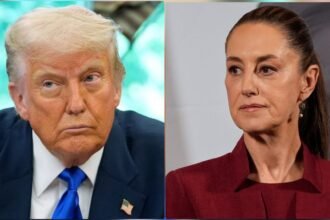Nobel Peace Prize 2025: Record 338 Nominees Vie for Prestigious Honor. The Nobel Peace Prize for 2025 has drawn an unprecedented 338 nominees, a significant increase from last year’s 286, reflecting growing global recognition of efforts to foster peace amid escalating conflicts and humanitarian crises.
The nominees, comprising 244 individuals and 94 organizations, represent a diverse array of advocates, activists, and groups working to address issues ranging from war and climate change to human rights and nuclear disarmament. As the Norwegian Nobel Committee prepares to announce the winner on October 10, 2025, at the Norwegian Nobel Institute in Oslo, anticipation is high for a decision that could spotlight critical global challenges or spark controversy, as the prize has often done in its storied history.
Surge in Nominations Reflects Global Urgency
The sharp rise in nominations for 2025 underscores the urgency of peace-building efforts in a world grappling with conflicts in regions like Ukraine, Gaza, and Sudan, as well as broader issues such as climate crises and refugee displacement. The Norwegian Nobel Committee, tasked with selecting the recipient, has not disclosed specific nominees, as is customary, but the pool is believed to include prominent figures and organizations addressing these pressing challenges.
Last year’s nominees reportedly included Ukrainian President Volodymyr Zelenskyy, the World Health Organization, and climate activist Greta Thunberg, suggesting the breadth of causes considered. The increase to 338 candidates this year indicates a growing number of individuals and groups being recognized for their contributions to peace, whether through diplomacy, humanitarian work, or grassroots activism.
The selection process is rigorous and secretive. The committee, composed of five members appointed by the Norwegian Parliament, begins by whittling down the nominations to a shortlist. This list is then evaluated by a group of permanent advisers and external experts, who assess each nominee’s impact based on Alfred Nobel’s will, which stipulates that the prize should honor those who have “done the most or the best work for fraternity between nations, for the abolition or reduction of standing armies, and for the holding and promotion of peace congresses.” The committee strives for unanimity but can decide by majority vote, often finalizing their choice just days before the October announcement. This deliberative process ensures a thorough evaluation but also heightens anticipation as the deadline approaches.
A History of Controversy and Impact
The Nobel Peace Prize has long been a lightning rod for debate, often seen as carrying a political message that amplifies global issues or stirs contention. The Nobel website acknowledges that some recipients have been “highly controversial political actors,” with their selection drawing both praise and criticism. Notable examples include the 2009 award to U.S. President Barack Obama, just months into his presidency, for his efforts to strengthen international diplomacy and cooperation. The decision prompted significant backlash, with critics arguing it was premature, and it remains one of the most debated awards in recent history.
Similarly, the 1973 award to U.S. Secretary of State Henry Kissinger and Vietnamese politician Le Duc Tho for negotiating a ceasefire in the Vietnam War led to the resignation of two committee members, who questioned the appropriateness of honoring figures tied to a still-contentious conflict. Le Duc Tho declined the prize, citing ongoing unrest in Vietnam, making it one of the rare instances of a refusal.
Another flashpoint came in 1994 when Palestinian leader Yasser Arafat shared the prize with Israeli leaders Shimon Peres and Yitzhak Rabin for their work on the Oslo Accords. The decision prompted one committee member to resign, reflecting deep divisions over Arafat’s role in the Israeli-Palestinian conflict. These controversies highlight the prize’s power to focus global attention on complex issues, often amplifying debates about peace and justice.
Despite the controversies, the Nobel Peace Prize has consistently elevated the profiles of its recipients, bringing their causes to a global stage. Past winners like Malala Yousafzai, who advocated for girls’ education, and the International Campaign to Abolish Nuclear Weapons (ICAN), which pushed for nuclear disarmament, have used the platform to drive meaningful change. The 2025 prize is expected to similarly spotlight a critical issue, whether it’s ongoing conflicts, climate justice, or human rights advocacy, given the diverse nominee pool.
The Prestige and Perks of Winning, Nobel Peace Prize 2025
Winning the Nobel Peace Prize comes with significant rewards, both tangible and intangible. The laureate receives a gold medal, a diploma, and a cash award of 11 million Swedish crowns (approximately $1.15 million USD as of July 2025). Beyond these, the prize grants immediate global recognition, thrusting lesser-known recipients into the spotlight and amplifying the work of already prominent figures. The award ceremony, set for December 10, 2025, at Oslo City Hall—marking the anniversary of Alfred Nobel’s death in 1896—is a globally watched event, attended by dignitaries, activists, and media, further elevating the winner’s platform.
For organizations, the prize often translates into increased funding and support for their missions. For individuals, it can mean a lifetime of influence, as seen with figures like Nelson Mandela and Desmond Tutu, whose Nobel wins bolstered their efforts to dismantle apartheid. The 2025 winner, whether an individual like a frontline humanitarian or an organization addressing global challenges, will likely see their work gain unprecedented visibility, potentially reshaping public discourse on their cause.
Looking Ahead to the Announcement
As the October 10 announcement approaches, speculation is rife about who might claim the 2025 prize. The Norwegian Nobel Institute, where the decision will be revealed, has remained tight-lipped, but social media platforms like X are abuzz with predictions. Some users suggest candidates like Sudanese peace activists or climate-focused organizations, reflecting the global crises dominating headlines.
Others point to figures advocating for refugee rights or nuclear non-proliferation, given the ongoing relevance of these issues. The committee’s decision, whether unanimous or by majority, will likely reflect a balance between rewarding tangible achievements and sending a broader message about peace in a turbulent world.
The 2025 Nobel Peace Prize comes at a time when the world faces interconnected challenges—war, displacement, and environmental crises—that demand bold action. The record number of nominees underscores the diversity of efforts to address these issues, from grassroots movements to international diplomacy.
As families, communities, and nations await the announcement, the prize serves as a reminder of the power of collective and individual action to foster peace, even in the face of controversy or adversity. The winner’s identity, to be revealed in Oslo, will not only honor their work but also shape global conversations about the path to a more peaceful future.








